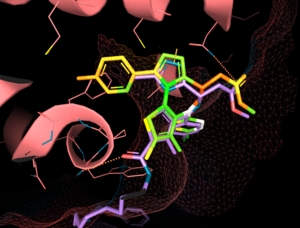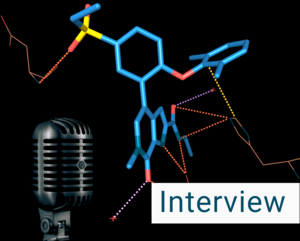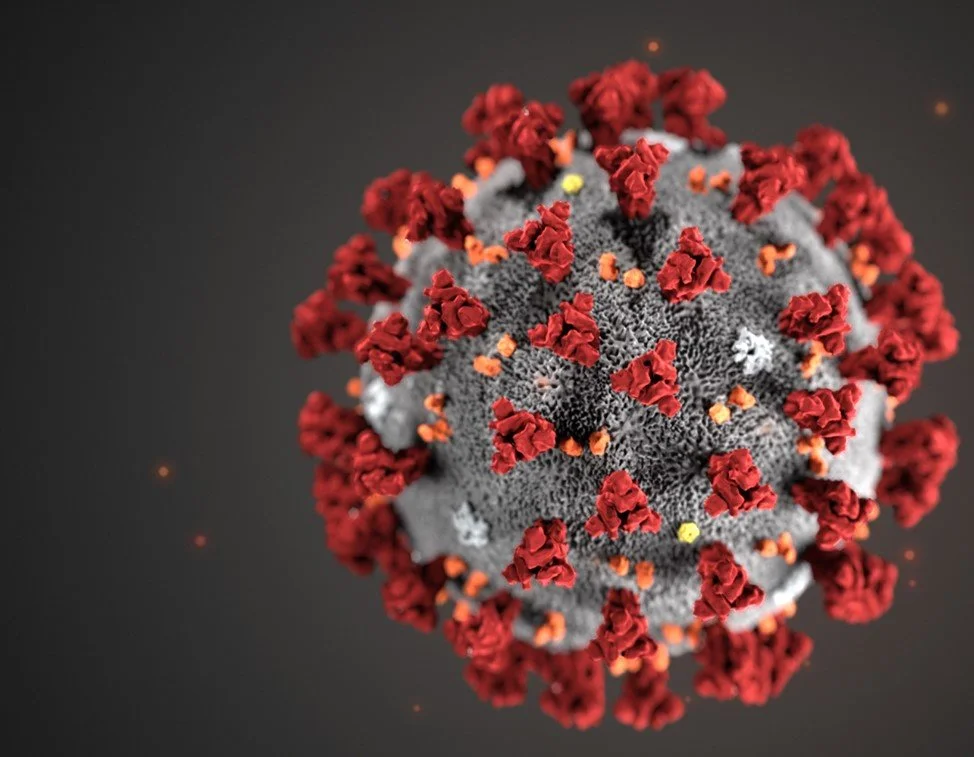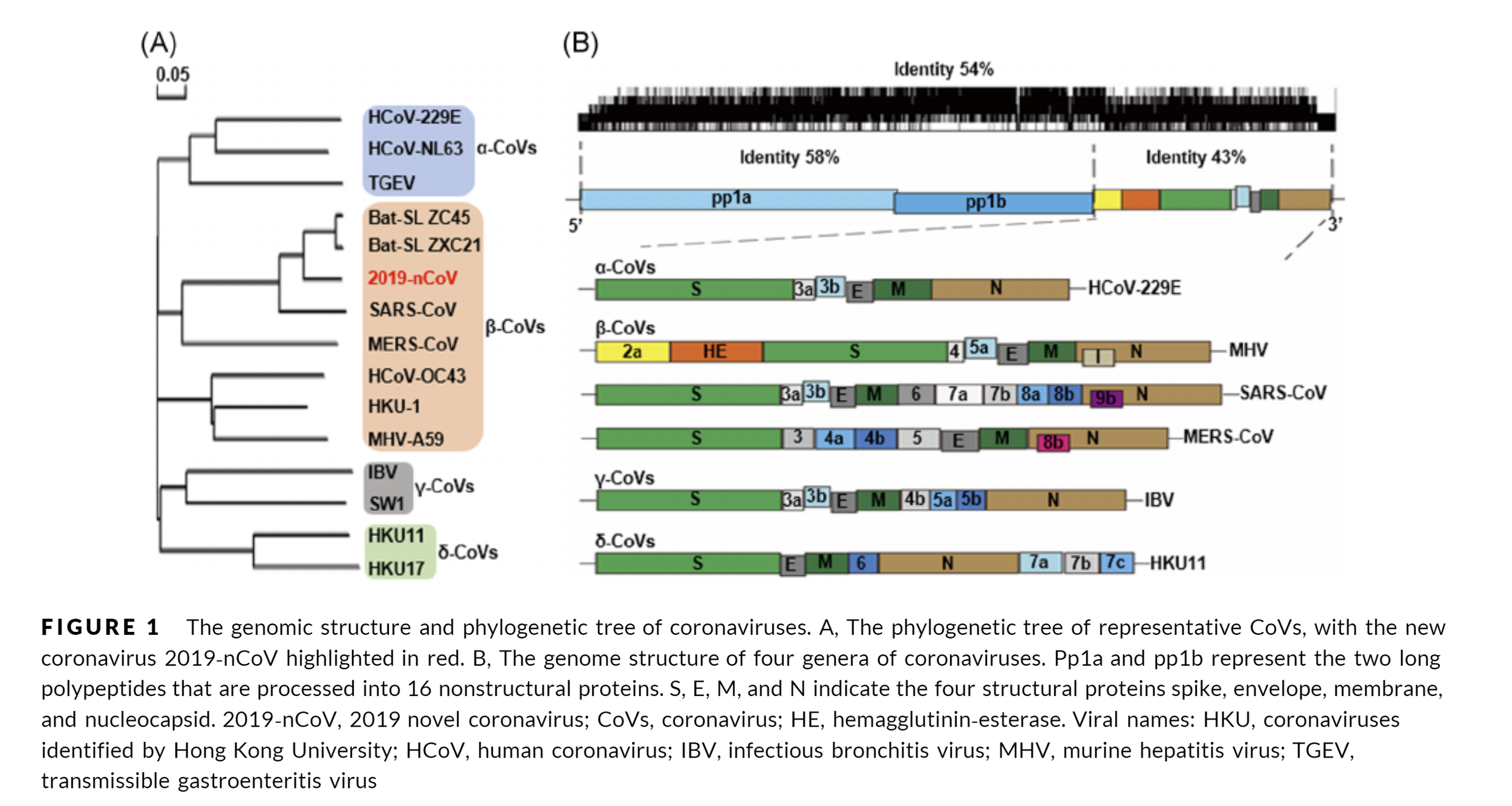
Structure-based lead optimization of a PROTAC small-molecule in the BRD4-CRBN complex
The purpose of this article is to illustrate how to apply some of 3decision’s features in scientific research. For this use case, the 3decision Subpocket Similarity Search is used to suggest modifications for the optimization of a small- molecule PROTAC. The Protein-Ligand interaction coloring by statistics is then used to evaluate docking poses of new compounds. The bromodomain-containing protein 4 – cereblon complex (BRD4-CBRN) and its degrader dBET23 are used as an example.

Discngine and Nanome are partnering up to enhance the structure-based drug design experience
Discngine’s 3decision team is partnering up with Nanome to bring a new dimension to structural analysis. With 3decision in VR, users will be able to entirely exploit the structural knowledge stored in 3decision in a new and advanced way to accelerate drug-design processes.
![An innovative way of organizing data: How can 3decision® improve decision-making process? [Customer Success Story]](https://images.squarespace-cdn.com/content/v1/64ef89ef638a126e29aba776/1708729231770-S5V9F4WU9H1I7NCQT1LO/thumbnail%2B2.png)
An innovative way of organizing data: How can 3decision® improve decision-making process? [Customer Success Story]
Manuel Cases Thomas, a Medicinal chemistry consultant and director at Senechaem was looking for a solution to help him use the full potential of data at hand and generate new design ideas. In this interview, he shares how 3decision® makes a difference in his daily work: from a scientific need to the impact on design ideas and successful project outcomes.

Starting with 3decision®: Allosteric pocket detection in BCR-ABL1 kinase
I found my way to quickly learn new software: by validating its features. In this article, I am presenting the retrospective analysis of the detection of BCR-ABL1 allosteric binding site using the 3decision Pocket Explorer feature.

What's new in 3decision® 2021.1?
The updated 3decision® version has some important new features for cross-team collaboration and structure-based drug design project management. A lot of improvements are made on the structure visualization UI as well.

Spotting differences in large structure collections
This short post shows how to quickly analyze larger collections of structures and check for common and different parts among such large sets of structures.

What are the challenges for medicinal chemists when working with 3D structures? - Interview
The continuous increase in the available 3D structural data brings along changes in the medicinal chemistry field. Dr. George Sheppard, Senior Principal Research Scientist at AbbVie, shared his thoughts on the benefits for medicinal chemists using 3D information, current challenges and limitations, and proposed potential ways for improvement, in the following interview.


How to speed up the preparation of data sets for Structure-Based Drug Design? – Webinar Recap
The construction of accurate data sets prior to the in-silico experiments is a crucial first step in many SBDD projects. In our latest webinar, we explained how 3decision® can help ease and speed up this process. For better understanding, we presented three common use cases in SBDD using our platform.

Getting ready for AlphaFold with 3decision®
Google-owned company DeepMind has achieved to predict 3D protein shapes with high accuracy and speed using the AI program AlphaFold. Although still in the early phase, this method can have a significant impact on drug discovery, accelerating the development of new drugs. In this article, we are discussing the importance of getting ready for the new source of structural data and how to gain the most of structural knowledge.

Should medicinal chemists use 3D molecular modeling tools?
We sat down with Dr. Alexis Denis, Ph.D. Medicinal Chemistry Director at Galapagos to collect his thoughts on the question: Should medicinal chemists use 3D molecular modeling tools?
We were able to understand how he manages the collaboration in SBDD teams, but also to understand his vision of how these positions/roles could evolve in the future.

Discngine & UserStudio: Uplifting User Experience in life science research applications
Recently, our collaborative platform, 3decision, just saw itself complemented with two new features (subpocket search & interaction search) and a radically different User Experience (UX). This new UX, with an updated User Interface (UI), is the result of months of collaborative work between UserStudio and the 3decision team.
In order to tell the story of this project, we gathered people from both companies to answer a few questions.


3decision® v2 – Discover the interaction search
The highly requested and long-awaited interaction search is finally here! Given the great amount of structural data we have at hand, the ability to mine ligand-protein complexes based on the interactions they create was a missing piece in our analytics toolbox.

3decision® v2 – Discover the subpocket search
Select a couple of amino acids in the binding site of your protein and retrieve, in a matter of minutes, other structures in the database which contain a similar subpocket. Similar meaning, similar features arranged similarly in 3D space. This is what the new subpocket search feature will allow you to do in the next release of 3decision!

3decision® v2 – Discover the new UI
Last year, we set out a process to improve the user experience in 3decision. After years of gathering feedback and interviewing key users, we knew it was time to address the design and workflow flaws in the user interface. With the help of User Studio, an external UI/UX design company, we went through a deep refactoring and restyling of the front-end. The resulting work will be available in the next upcoming release of 3decision (3decision v2)!


Discngine announces that Sosei Heptares will use its 3decision® software to create an unprecedented structural GPCR chemogenomics platform
Discngine announces that Sosei Heptares will use its 3decision® software to create an unprecedented structural GPCR chemogenomics platform. 3decision® will enable Sosei Heptares to combine public and proprietary structural data and derive unique GPCR structural insights.

SARS-Cov-2 - part 3 - nsp1: A hopefully more detailed analysis of the cellular saboteur
My German cartesian mind (here we go with stereotypes) asks me to start with the first protein expressed by the viral genome of SARS-Cov-2, nsp1. That is, by far, not the low hanging fruit. But it is interesting to learn more about the roles of the different constituents of the virus. Nsp1 actually has also a few very interesting roles to facilitate the viral lifecycle in its host environment.

SARS-CoV-2 - part 2 - From the viral genome to protein structures
The bread and butter of every structure based drug design or drug ID effort is the need for 3D structural information of a target of interest related to the phenotypic outcome we want to alter. In the case of SARS-Cov-2 several experimental structures are already available in the RCSB PDB. Other a large scale fragment screens from the Diamond Light Source are slowly becoming available (available in the 3decision protease project for now) on public resources likes the RCSB PDB. Popular homology modelling services also already started to provide several high quality models for some of the yet not resolved structures of the viral proteome.
But let’s first have a look what the viral genome actually contains and what are currently pursued efforts.
